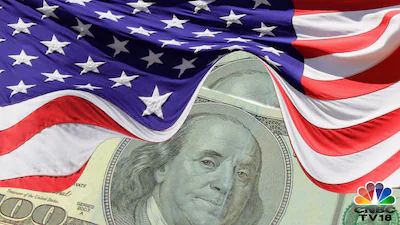In a bid to explore economic challenges about countries and currencies, The New Daily Prime reports that the countries below have been using other countries’ currencies as legal tender
In the intricate world of global finance, some nations have opted to adopt foreign currencies as their official legal tender. This phenomenon, often referred to as “dollarization” (when the U.S. dollar is involved), occurs due to various factors including economic instability, hyperinflation, and strong trade relationships. While this approach can stabilise economies and reduce inflation, it also limits a nation’s control over its own monetary policy.
Ecuador
In response to a devastating financial crisis and soaring inflation rates in 2000, Ecuador adopted the U.S. dollar as its official currency, replacing the sucre. The change helped reduce inflation dramatically and restore investor confidence (Springer, 2024). However, the country no longer has independent control over its monetary policy, making it vulnerable to U.S. economic decisions.
Panama
Panama has used the U.S. dollar as legal tender since 1904, following its independence and the start of construction on the Panama Canal. Although the country issues its own coinage (the balboa), U.S. dollars are used for all paper currency transactions (Investopedia). This has helped maintain economic stability, but again, limits Panama’s ability to implement monetary policy independently.
El Salvador
El Salvador officially dollarized its economy in 2001. The move was driven by the desire to stabilize prices, encourage investment, and simplify remittances from the U.S., a major source of income for many Salvadoran families (Springer, 2024). While inflation was kept in check, critics argue that the country sacrificed economic flexibility.
Read Also:Why countries are choosing dollar over their currencies
Kosovo
Following the Kosovo War and the withdrawal of Serbian control, Kosovo unilaterally adopted the euro in 2002 to stabilise its economy and improve integration with the European market, even though it is not a member of the European Union (Wikipedia, n.d.). The European Central Bank does not formally recognize Kosovo’s euro usage, meaning the country has no say in European monetary policy (AP News, 2024).
Lesotho
Lesotho uses its own currency, the loti, but maintains a one-to-one peg with the South African rand, which also circulates freely within the country. This is part of the Common Monetary Area agreement, which includes South Africa, Namibia, and Eswatini (Wikipedia). The arrangement facilitates trade and monetary coordination but ties Lesotho’s economy closely to South Africa’s.
By and large, the adoption of foreign currencies as legal tender is a strategic decision made by countries facing economic challenges. While it can provide short-term stability and restore confidence, it also means relinquishing control over monetary policy. Nations must carefully weigh the benefits and drawbacks of such a move to ensure it aligns with their long-term economic goals. c



